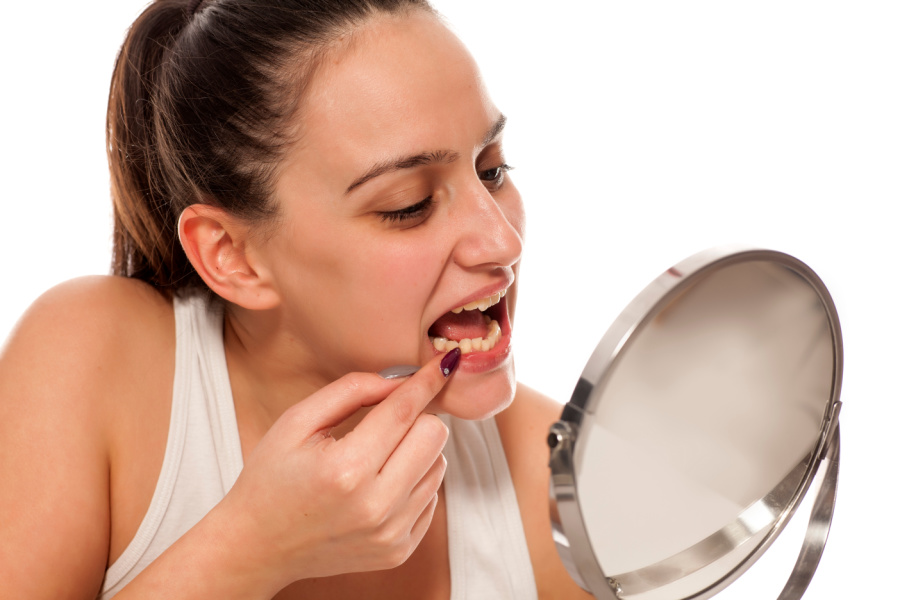
When you have a dental implant, proper care and maintenance are essential. It’s usually advised to avoid certain foods and be mindful when chewing, as food particles can become trapped around the implant. This can lead to inflammation and potentially harm the surrounding tissues, which can compromise the health and longevity of your implant.

Dental implants are a widely chosen solution for replacing missing teeth. They consist of a titanium post inserted into the jawbone, where it integrates with the surrounding bone and tissue. This post serves as a stable foundation for replacement teeth or crowns, which are typically made from porcelain, metal alloy, or a combination of both.
Dental implants are increasingly preferred over traditional dentures because they offer several advantages:
Food can become trapped under dental implants for a few reasons. Unlike natural teeth, implants may have tiny crevices around the crown or between adjacent teeth where food can get caught. Bone loss around the implant—sometimes caused by conditions like gum disease or treatments such as radiation or chemotherapy—can also create gaps that make it easier for debris to lodge beneath the implant.
Additionally, certain eating habits, like chewing with your mouth slightly open or not fully breaking down food, can increase the likelihood of particles getting stuck. Being mindful of how you eat and maintaining good oral hygiene can help prevent these issues and protect the tissues around your implant.
If you think food is trapped under your dental implants, it’s important to contact your dentist. They can safely remove any debris and check that your implants and surrounding tissues aren’t damaged.
Continuing to eat foods that are hard to chew without addressing trapped food can increase the risk of complications, including infections or damage to the implant. Prompt attention helps protect your oral health and ensures your implants remain stable.
Your dentist will typically use a dental mirror to inspect the area around your implant for trapped food. If any is found, they can carefully remove it using a dental pick.
In some cases, if nothing is visible on the surface, the dentist may check under the gum line with the mirror to ensure there’s no hidden debris.
If food gets trapped under your dental implant, seeing your dentist is important, but the removal is usually not painful. Your dentist may numb the area and then use a dental instrument to carefully remove the food. In rare cases, if the implant itself has been damaged due to prolonged pressure or force, further treatment may be needed—but simple food removal is typically quick and comfortable.
After a dental implant cleaning and debridement, it’s best to wait 2–4 hours before eating. You may feel some mild discomfort for a few days following the procedure.
If you’re worried that food is getting trapped under your implants, it’s a good idea to consult your dentist. They can assess the situation and recommend the most appropriate treatment. Dental implants are a durable and long-lasting solution for missing teeth, but like natural teeth, they can be damaged. Regular checkups and professional cleanings help maintain their health, and any implant-related issues can typically be repaired if addressed promptly.